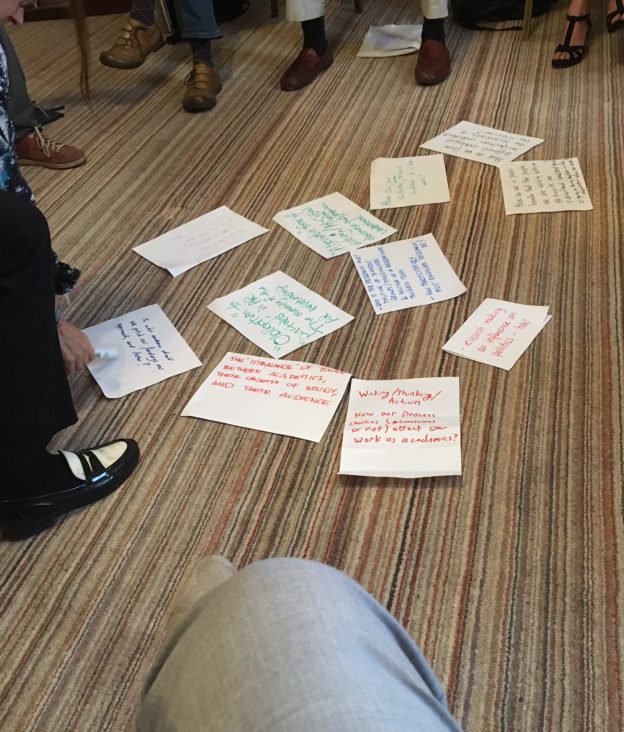I went to the International Critical Management Studies conference this last summer in Liverpool, England. For sure, I was most interested in understanding how management, arguably one of the most neoliberal parts of the academy, arguably the inventor of neoliberalism, arguably the force behind many of the problems that we see in the world today. In my studies I have found this to be a very robust community and at the conference I was not disappointed.
In my own work I see a lot tension within the work I try to do in terms of empathy and sometimes the practicality of making things “work” for now. I wondered if they saw this problem as well, or perhaps they were too focused on their own struggles (the struggle for a recognition for qualitative approach and against free market, for example). Critical management scholars (or critters as they are most adorably called) were very aware in some ways of how their work affects themselves and others often in ways they can’t control or anticipate.
During my time with critters, we talked of many things. I was in an action research track that was interested in making an impact on the community in which they work. Towards the end, there was an activity where people tried in our smaller group to draw findings. One thing we talked about, which was quickly dismissed but was incredibly interesting to me, was when someone pointed out how guilt played so much into what we did. I found that so incredibly interesting, I wrote it down on the piece of paper, and that was the thing that I ended up taking home. How do we process our work as academics, in writing, thinking, action? That was my momento from my short time in England.
So many things I do are motivated by guilt, especially when I do things involving social justice. There’s guilt I feel as part of being in the librarian community, as being an academic person, being a business educator, being part of a double-income no-kids family where both of us are paid living wages, being white and female.
I didn’t think about it until this conference, but I have done a lot of good because of that guilt. But not all good. The thing about guilt is that it feels good when you are doing it. You feel bad, you want to do better, and the best way to do better is to learn to do better, and actually do better. You feel like you have gotten beyond your guilt when that happens. You feel like you know more.
The thing about guilt is that doing things from a place a guilt is probably the most selfish thing you can do. Because in the end you are doing it because you want to feel better. You are ultimately not doing it to make the world a better place, or because it should be done, but simply for your own feelings Once you feel better, you are not going to motivated to do other things. And if you can’t feel better, in fact if you actually feel worse, you are likely to do even more destructive things in the future.
Guilt often motivates you to do things that are wrong for the people involved. In academia, we are really interested in getting involved in the community. I think that academics do try to understand the world all around us. We really want to get involved. We often push each other into working more with community often out of a place of guilt. I think that’s the most destructive type of guilt – the guilt that we have as a community. We also should know that the world is always, always more complicated than academia, so our attempts to change it might be slow, much slower that our guilt allows. Yet still we push and pressure each other into getting involved. We suggest that people make themselves burn out doing things for community because that is only way.
I think it’s very dangerous to do things out of guilt. It feels good, but guilt isn’t what should motivate you. So what should you do if you are motivated out of guilt? I think it’s important to use reflection to find ways other than guilt to motivate you to do good work. Motivation is so important. Maybe we do things for that moment where we make a difference. We might also do other things because we want to try something new, or maybe we like the thrill of learning new things. Maybe we like to do things because they challenging.
Let’s try to not do things because we want to be better, let’s try as academic to do things which we think are valuable. If we are teaching on purpose, let’s teach not for the purpose of making ourselves feel better. Let’s teach because we believe we can make the world better. That’s vital.
